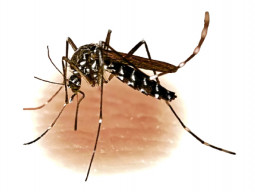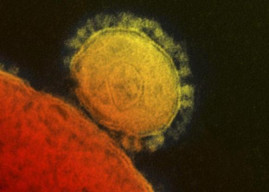
He was speaking at the inaugural session of the three-day Child and Adolescent Mental Health Conference, organised by Sir CJ Cowasjee Institute of Psychiatry and Liaquat University of Medical Health and Sciences, Jamshoro (LUMHS).

Child psychology focuses on the study of the mind and behaviour of children, from infancy through to adolescence, dealing with mental, emotional and social development processes too. Psychoanalysts recognise that child psychology is a uniquely complex field, as children think very differently from adults.
“Not every psychotherapist can become a specialist in child psychology,” said Dr Rana. “One must nurture affection in the heart to undertake this job.”
SAARC Psychiatric Federation president Prof Dr Syed Muhammad Sultan went on to claim that there are only around 400 psychiatrists serving Pakistan’s population of 200 million people, adding that there were less than 10 child psychotherapists in Pakistan.
“Apart from congenital mental disorders, the crippling mental health conditions among children result from factors such as poverty, the loss of parents, trauma, child abuse and labour,” he said. “Poverty hits them hard, as their right to survival, nutrition, health, education and protection from harm and exploitation is threatened.”
Dr Sultan shared a study conducted at a private clinic in Karachi, showing that male children are more likely to suffer from mental disorders than females. Of the patients who underwent therapy at the clinic, 63 per cent were male, with a majority being between the ages of five and 10.
LUMHS paediatric department head Dr Salma Shaikh expressed her regret that child specialists almost always overlook symptoms of psychological disorders in their patients. “We are so occupied in treating them physically that we don’t even bother to notice their facial expressions,” she said.
Dr Unaiza Niaz, who has spent extensive time treating children from Northern Pakistan after the 2005 earthquake, displaced children from North Waziristan and Palestinians from Gaza, said that although traumatised children often could not verbalise their fears, they came across in their behaviour.
“Their sense of safety is shattered by the frightening visuals, deafening noises and violent movements caused by unpredictable, terrifying events,” she said, explaining childhood trauma in children under the age of six. “Consequently, their cognitive, social, emotional, physical, psychological and moral development is affected.”
Dr Rana asserted that he had never seen a child who had psychological issues but no traumatic history. He especially pointed out the harmful effects of parental pressure to excel in school exams. “It’s a trauma coming from love, one of desires, expectations and demands that a child cannot fulfil, and hence, the child lives in constant fear of failure,” he elaborated. He added that good parenting comprised of setting personal examples and promoting truthfulness, realism and empathy.
He announced that with the approval of the College of Physicians and Surgeons Pakistan, a two-year fellowship in child psychiatry would be offered at Lahore Psychiatric Hospital, Aga Khan University Hospital in Karachi, and Benazir Bhutto Hospital in Rawalpindi from 2015. He added that the skill-intensive training would be open to fellows who have already completed a fellowship in paediatrics or psychiatry.
Addressing the concluding ceremony on Sunday, former University of Health Sciences, Lahore, vice-chancellor Prof Malik Mubashir Hussain advised parents to pay special attention to nurturing the senses of security, unconditional parental love, respect, consistency and promotion of positive attitudes in their children.
Published in The Express Tribune, September 29th, 2014.





















1714024018-0/ModiLara-(1)1714024018-0-270x192.webp)
















COMMENTS
Comments are moderated and generally will be posted if they are on-topic and not abusive.
For more information, please see our Comments FAQ